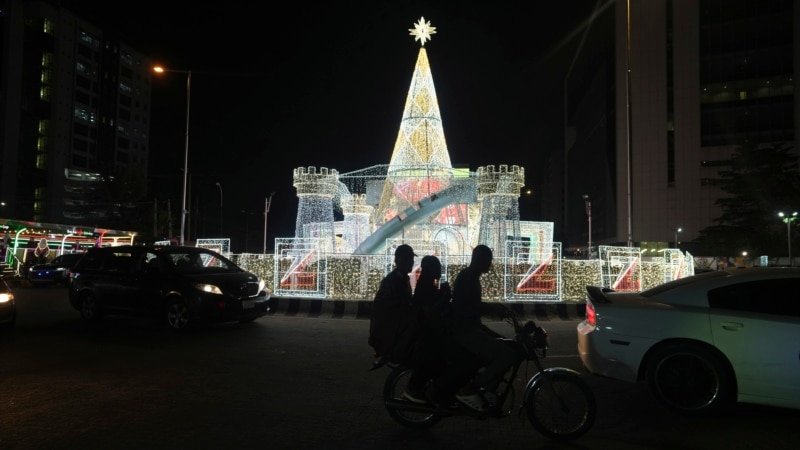
At least 67 people, many of them children, were killed in stampedes during three Christmas charity events across Nigeria last week. Families are struggling during the country’s worst survival crisis in a generation.
At least 35 children were killed in southwestern Oyo state on Wednesday. And on Saturday, 22 people died in southeastern Anambra state, while 10 died in the capital Abuja, where more than 1,000 people gathered at a church to receive clothing and food.
Here are some of the problems facing Nigerians.
Inflation at highest level in 28 years
“There is hunger in this Nigeria. Every Nigerian needs food,” a crying woman told local Arise television after the stampede in Abuja.
The economic crisis is blamed on government policies to save money and attract investors, which have contributed to the inflation rate reaching a 28-year high of 34.6%. Meanwhile, the Naira currency is at a record low against the dollar.
According to the government statistics office, at least 63% of Nigeria’s population of more than 210 million are poor. The government has struggled to create jobs. And when people gather to protest the hardship, the security forces immediately crack down on them. In August, more than 20 people were shot dead by security forces during nationwide protests.
“The average Nigerian has seen food falling out of reach,” said Cheta Nwanze, managing partner of Lagos-based SBM Intelligence research firm. In 2022, he said, the firm found that about 97% of Nigerians spend up to 63% of their income on food, but that share may have increased since then.
According to Loveth Inyang, an eyewitness who saved a child from being crushed, some of those who died in Abuja waited outside the church overnight in the cold weather for a chance to gain early entry.
Security is too expensive
Deadly stampedes in Nigeria are not new and are often caused by lack of adherence to public safety measures. But analysts say people’s desperation to survive is making crowd control more difficult.
Accounts from witnesses and police in Abuja and Anambra revealed that stampedes occurred before the events began as people tried to secure key positions.
In Abuja, the church was forced to cancel the event, leaving bags of rice and clothes inside.
Organizers of such charity events often do not consider security a priority, said Ademola Adetuberu, who runs the Abuja-based Barricade Executive Protection security firm.
Meanwhile, the number of events is increasing as charities and organizations attempt to meet the growing demand for food.
“If organizers of such events brainstorm more, seek professionals to advise them and budget for security, this can be prevented,” Adetuberu said.
How are officials responding?
Nigerian President Bola Tinubu has asked authorities not to tolerate “operational lapses” by organizers of such events, while police have made it mandatory for organizers to seek prior permission before hosting them.
But analysts say such commitments are not new and are generally difficult to enforce.
“People’s income has decreased throughout the year. When they hear somewhere that food is being distributed, their natural instinct is to go away,” Nwanze said. “Add this to our extremely poor queer culture and you have the perfect storm that would cause such a stampede.”